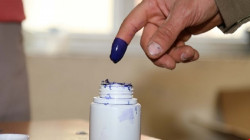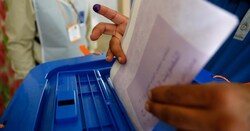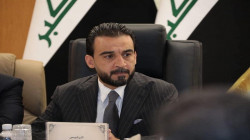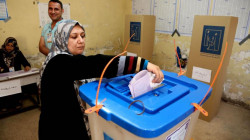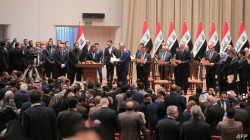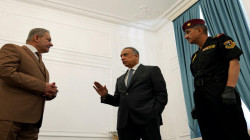Tensions escalate over Kurdistan elections: Debate over postponement amid political strife
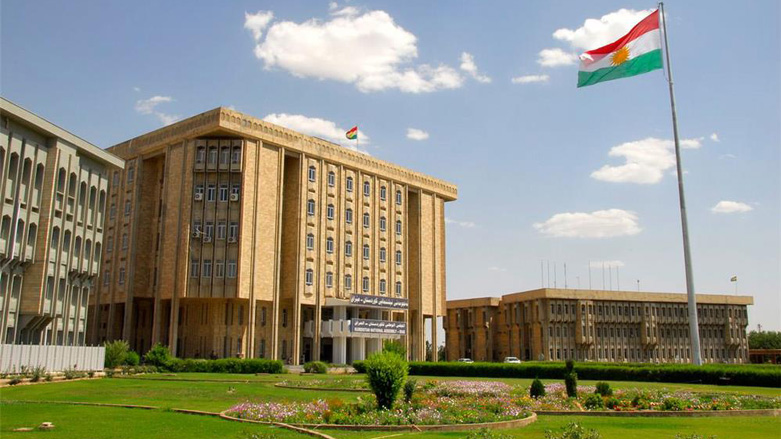
Shafaq News / As the June 10th date approaches, tensions escalate regarding the parliamentary elections in the Kurdistan Region, debating whether to hold them as scheduled or postpone them, amid fears of political repercussions that could affect the Region in both scenarios.
Last February, the Federal Court rejected amending the electoral law, prompting the Kurdistan Democratic Party (KDP) to announce non-participation in elections held without minority participation, among other concerns.
"Persistent" positions of Kurdish arch-parties
On the other hand, particularly at the Patriotic Union of Kurdistan (PUK), the political rival of the KDP, in its latest stance on the Regional parliamentary elections, it affirmed its insistence on holding them without delay, according to the latest meeting of the party's political bureau held in al-Sulaymaniya.
PUK’s Political Bureau stated that "the party would inform those involved in the Kurdish, Iraqi, and international political processes of its commitment to democracy. It will resort to legal action according to the Iraqi constitution and prevailing laws to defend the rights of the people, unanimously with national voices and Kurdish forces advocating commitment to the election schedule and unity to strengthen democracy."
"Will not happen" without course correction
Meanwhile, a senior member of the KDP emphasized that their party insists on addressing the previously raised concerns. He indicated that "the KDP will not participate in elections with predetermined outcomes."
Akram Saleh, the party's organizing official in Garmian, told Shafaq News Agency that the KDP would not partake in elections "unless those concerns regarding quota seats, minority representation, resolving the issue of disenfranchised voters numbering around 400,000, manual counting of ballots, and election oversight mechanisms were taken into consideration and addressed."
He added that "the KDP continues its efforts to correct the electoral process and postpone it to a later time for addressing the aforementioned concerns, expecting that any elections would not succeed without the participation of the KDP."
International request for postponement
Moreover, a member of the Iraqi Parliament from the Islamic Justice Movement, Suran Omar, revealed to Shafaq News Agency that the United Nations envoy to Iraq Jeanine Hennis-Plasschaert sent a letter to the Federal Court and the Iraqi Electoral Commission demanding the return of minorities to participate in the elections, implying a request to postpone the elections in the Region.
Regarding his party's stance on election conduct and postponement, Omar affirmed that "elections have been postponed three times, and another postponement would mark the fourth."
He stated that the Islamic Justice Group "supports holding the elections on time and opposes their postponement, aligning with the decisions of the Independent High Electoral Commission."
Omar noted that during his recent visit, "the Region's president requested Baghdad to postpone the elections," explaining that "federal authorities are awaiting Kurdish consensus on the postponement, with only the KDP currently in favor."
In late April, Iraqi Prime Minister Mohammed Shia Al-Sudani directed the Electoral Commission in Iraq to conduct parliamentary elections in the Kurdistan Region "with everyone's participation," following a "significant" visit by the Region's president, Nechirvan Barzani, to Baghdad.
Former MP Rezan Sheikh Delir told Shafaq News Agency that "the UK remains committed until its last meeting to holding the elections as scheduled. However, there are doubts about the stance of other parties regarding election conduct and whether the Region can hold legislative elections without the KDP's participation."
She added that every political party holds significance and weight in the election process, especially if the party holds governmental authority, security influence, and mass appeal like the KDP, clarifying that even if the PUK had a stance against holding elections, the elections would not proceed.
Sheikh Delir questioned whether "conducting elections in al-Sulaymaniya but not in Erbil and Duhok would exacerbate the Region's problems," wondering if this implies a desire to divide the Region into two parts.
Meanwhile, Kurdish political analyst Fakhr Azaddin outlined three scenarios for postponing the Kurdistan Region parliamentary elections.
He explained that "the first scenario involves postponing them for three months, the second for six months, and the third entails holding them concurrently with Iraq's elections next year."
He noted that "the ongoing shuttle diplomacy aims to reach a legal solution and exit strategy for the return of components, reversing the Federal Court's decision."
As for the Independent High Electoral Commission's position, it has no new opinion on these disputes except that, according to its official spokesperson, the election commission offices in the Kurdistan Region continue their work.
The Commission’s spokesperson in Iraq Jumana Ghulay stated that "the Iraqi Electoral Commission has not halted the work of its offices in the Kurdistan Region. Reports suggesting otherwise are inaccurate, and all offices are functioning to prepare for the elections."
Regarding the printing of ballots for the parliamentary elections in Kurdistan, Ghulay explained that the commission has not yet started printing, as they are awaiting the eligibility results of election candidates.
On March 18th, the KDP had announced its boycott of the parliamentary elections in the Kurdistan Region scheduled for June, threatening to withdraw from the political process in Iraq if political parties in Baghdad did not adhere to the agreements leading to the formation of the Iraqi government.
Earlier, the KDP reiterated its commitment to its boycott of the parliamentary elections in the Region unless its concerns about the electoral procedures and mechanisms were addressed to ensure the interests and rights of the Kurdish people.
The KDP's decision came after controversial decisions by the Federal Supreme Court in Iraq regarding the Kurdistan Region elections.
The Supreme Court issued decisions on February 21st, 2024, regarding the Kurdistan Parliament Election Law, which included the cancellation of minority "quota" seats and the replacement of the Kurdistan Electoral Commission with the federal one.
Kurdish leader Massoud Barzani stated that the Federal Supreme Court's decision to cancel the component quotas in the Kurdistan Region parliamentary elections is a "blow to partnership and coexistence."
The number of eligible voters in the Kurdistan Parliament elections is approximately 3.7 million people.
The last elections in the region, held in 2018, resulted in the KDP winning 45 out of 111 seats, while the PUK won 21 seats.
